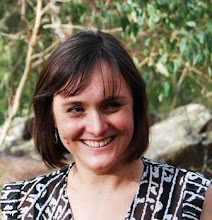I recently completed a TAFE course called "Participating in Sustainable Work Practices" and the course content heightened my awareness of the need to reduce waste. Early in the course all students were directed to watch the online animated video called "
The story of stuff". The video takes you through the life-cycle of a product and makes you aware of the amount of resources that are consumed when a relatively insignificant item is produced and eventually ends up in landfill. Anyway, it certainly got me thinking about the amount of 'stuff' I consume and how I can reduce it.
When analysing the way that I worked I found that there was an amazing number of ways that I could reduce waste - particularly paper waste. My colleague and I are now continually coming up with ideas to reduce the amount of paper that we need to use in the Library by redesigning work flows, and storing information on the computer instead of printing and filing it. It's quite a fun game when you really get into it!
Librarians talk to a lot of people in society and we can teach ecologically sustainable practices to those we interact with. Let's teach ourselves to be as economical as possible and help to change attitudes about waste.



